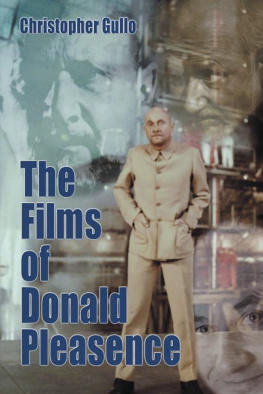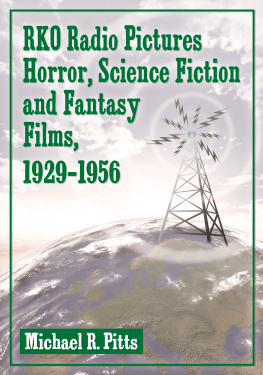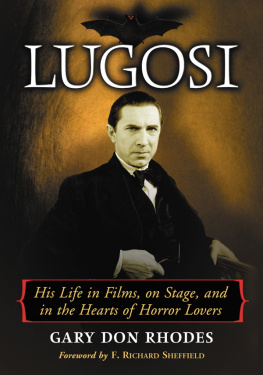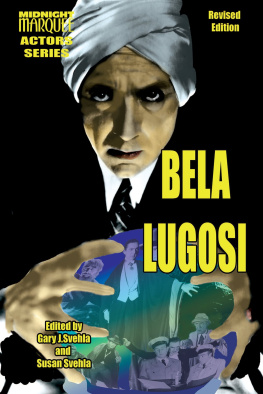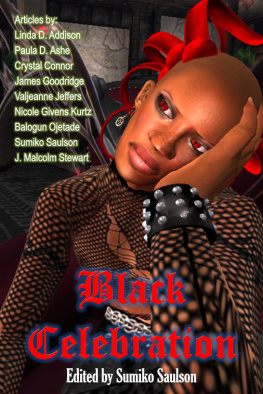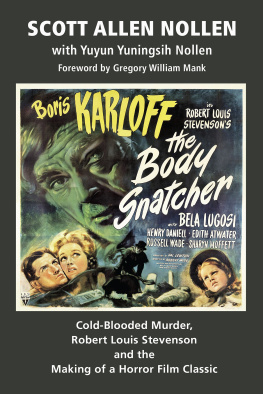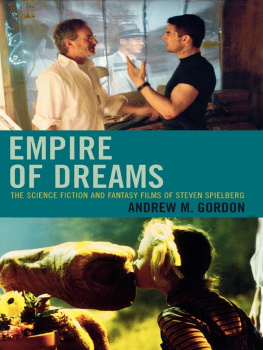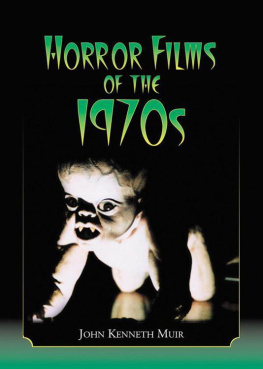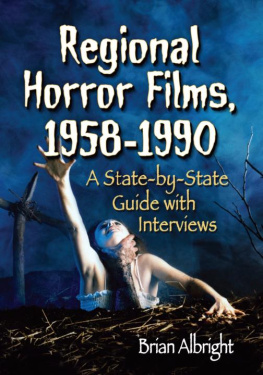THE FILMS OF DONALD PLEASENCE
By
CHRISTOPHER GULLO
The Films of Donald Pleasence
2012 Christopher Gullo. All RightsReserved.
No part of this book may be reproduced in anyform or by any means, electronic, mechanical, digital, photocopyingor recording, except for the inclusion in a review, withoutpermission in writing from the publisher.
This version of the book may be slightlyabridged from the print version.

Published in the USA by:
BearManor Media
PO Box 1129
Duncan, Oklahoma 73534-1129
www.bearmanormedia.com
ISBN 978-1-59393-212-1
Cover Design by John Teehan.
eBook construction by.
Table Of Contents
To my son Anthony Gullo
Who continues to make me proud at every moment ofhis life.
And to Donald Pleasence, O.B.E., for providing somany enjoyable performances.
Acknowledgments
I would like to thank the followingindividuals and institutions for their invaluable assistance in theresearch and writing of The Films of Donald Pleasence:Michael G. McGlasson, for so generously editing my book in bits andpieces; Ben Ohmart and BearManor Media, for publishing my project;Linda Pleasence, Angela Pleasence, Joy Jameson, John Carpenter,Kevin Connor, John Dark, John Mayall, Sylvester McCoy, MichaelPattinson, Robert Weinback, Gerrard Potterton, Don Calfa, MartynBurke, Ulli Lommel, Gonzalo Suarez, Jeff Bridges, Lawrence Douglas,Don Pedro Colley, Oliver Tobias, David Worth, Jeremy Bulloch,George Wilbur, Reverend Mother Dolores Hart, Dick Warlock, DonaldMacDonald, Renee Glynne, Tony Britton, David Birney, FrankStallone, Shirley Eaton, Ira von Furstenberg, Annie Korzen, HowardGrey, Tony Battock (for kindly tracking down some of the moredifficult to find films), Tony Earnshaw, Brian Peters, Edward T.Peters, Nancy Vaskas, David Vaskas, John Gibbon, Salvador FortunyMiro, John Gullide, Sean Sobczak, Pat Halliday; Lynda Naylor,Nottingham Central Library; Philip Robinson, Nottingham CityCouncil, Sheffield Forum; Kevin Bradford, Randy Vest; and, ofcourse, my wife, Beth Anne Gullo.
A Letter ofAppreciation
Dear Christopher:
I wish to thank you for your interest in myhusband Donald Pleasence and I am sure he would be very flattered.Donald was a great actor and a very good and gentle man; he wasalso a great father who loved his daughters and was very proud ofthem. He has lovely grandchildren who loved him so much. He was atrue gentleman and a loyal friend. When he worked on stage on therevival of The Caretaker with Colin Firth, Donald told methat Colin would become a great actor. I wish Donald were alivetoday to see how great Colin Firth has become. Donald also lovedand admired the one and only Harold Pinter and stayed friends withPeter Vaughn, one of Englands most talented actors, until the dayhe died; they both had a wicked sense of humour.
Donald always stayed true to his workingclass roots and was always happy to see his close friends likeDavid Warner and Ian McShane doing well in their careers. He alsoloved working in the United States and was a true admirer of JohnCarpenter. My good friend Don Calfa was one of Donalds bestfriends and in my opinion is one of Americas great actors. Donaldwas also very proud of his childrens book Scouse the Mouseand was bitterly disappointed when due to circumstances beyond hiscontrol, the book never took off. His great friend Gerald Pottertonwas the illustrator of both the book and the album cover and ofcourse is a great illustrator and film director. His good friendand marvelous agent Joy Jameson was very special to Donald becauseshe and her then-partner Tessa Sutherland were always there forhim.
I miss Donald and theres never an hour inany day that I dont think of him. I will love him until the day Idie; he meant the world to me and still does. I would like to thankyou and your publisher for this tribute to my husband, a verytalented actor, a funny man and a true English gent with a biggenerous heart. My dear, I wish you were here to read it.
Linda Pleasence
Introduction
Welcome to my tribute to Donald Pleasence. Inoticed that when I mentioned to friends and family that I waswriting this book, they would often say two things first, thatthey remember Pleasence from films like Halloween and TheGreat Escape, and TV shows like Columbo; and second,what made me choose to write a book on Pleasence? My answer is thathe deserves one. I was surprised to learn that my book is the veryfirst one devoted to Pleasence, a man whose film career stretchedfrom the 1950s to the 1990s; a man who starred in Hollywood hitsand productions around the world; a man who proudly served hiscountry in World War II as he was horrified to hear of what wasgoing on in the Nazi concentration camps; a man who brought to lifethe wondrous character of Bernard Jenkins in Harold Pinters TheCaretaker and repeated this feat in both London and New York; aman beloved by his fans for his iconic character of Dr. Loomis inthe Halloween film series started by John Carpenter.
To share a little of my own initial interestin Donald Pleasence, I actually saw my first Pleasence film whilein school when a science teacher showed us Fantastic Voyage.Besides the science angle of seeing all the body parts, I wasintrigued by Pleasences character, who turns out to be a saboteurand eventually meets a rather nasty end. I later saw Pleasence inthe first two Halloween films and was hooked, and startedlooking for his appearances in various films in my weekly TVGuide and circling them to remind myself of what to watch.
So here it is my tribute to the greatDonald Pleasence for all of his wonderful performances that kept meentertained while growing up. Thank you.
Christopher Gullo
Donald Pleasence: ABiography
As a young boy growing up in the small townof Worksop, England, Donald Pleasence always dreamed of becoming anactor. Interestingly enough, Worksop is located next toNottinghamshire, home of the fabled Sherwood Forest and the allegedhome of the legendary Robin Hood and of which Pleasence wouldeventually star as Prince John in the 1950s British televisionseries The Adventures of Robin Hood. Economically, Worksopwas a working-class area and was greatly aided by the discovery ofcoal deposits which led to the creation of the local coal miningindustry. In turn, in 1849, this new industry led to theconstruction of the Manchester, Sheffield, and Lincolnshire Railwaythat would later play a major role in the careers of the Pleasenceclan.
Donalds father raised his two sons asfollowers of the Socialist Party and as Methodists; thus, Donaldremained a life-long Labour supporter and was always activelyinvolved in following the political scene. However, he chose not tofollow the religious teachings of Methodism and became aself-proclaimed atheist.
Continuing the family trade, Ralph Pleasenceeventually went on to work with his father in an entry-levelposition with the railroad which became a Pleasence familyprofession that demanded hard work but provided low pay. Aftertoiling away for many years as a lowly railroad worker, Ralph waspromoted to the position of station master. As for Donald, hisparents were very concerned about his choice to become an actor andinsisted that he continue his studies at school. Donald obeyed hisparents wishes and excelled in school by maintaining very highmarks and reaching matriculation at the scholarship level. While inA levels at school, seventeen year-old Donald made his way toLondon and won a scholarship to the Royal Academy of Dramatic Art,but because the scholarship did not include housing and his parentscould not afford to pay for it, he returned home. Donald then founda position collecting tickets for the railroad, another entry-levelposition that he maintained while searching out acting jobs.

